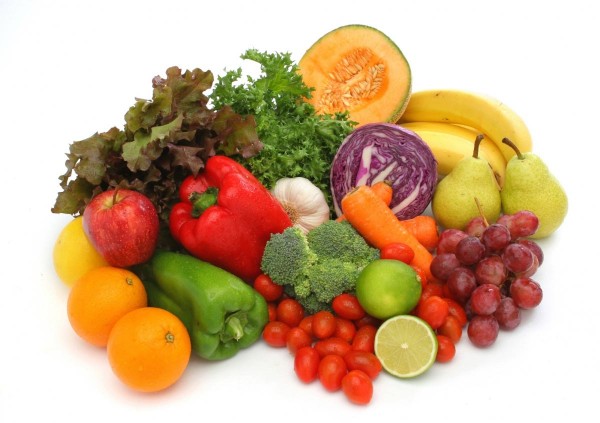Who needs meds? Simple potassium may lower blood pressure more safely than prescription drugs
04/13/2017 / By Russel Davis

Eating foods high in potassium — such as fruits, vegetables, grains and roots — may help lower blood pressure levels, a recent analysis revealed. According to the review, higher dietary potassium intake was associated with significant reductions in blood pressure regardless of sodium intake. Data also show that high potassium consumption curbs blood pressure by using sodium to closely regulate potassium levels in the blood, which is crucial for normal heart, nerve and muscle function.
“Decreasing sodium intake is a well-established way to lower blood pressure. But evidence suggests that increasing dietary potassium may have an equally important effect on hypertension…When dietary potassium is high, kidneys excrete more salt and water, which increases potassium excretion. Eating a high potassium diet is like taking a diuretic,” said lead researcher Prof. Alicia McDonough, ScienceDaily.com reports. Prof. McDonough is a Professor of Cell and Neurobiology at the Keck School of Medicine of the University of Southern California.
However, the lead researcher cautioned that increasing dietary potassium intake may be challenging as our ancient ancestors evolved to crave sodium. Modern diets have also shown a drastic change, with food companies adding salt to satisfy this craving.”If you eat a typical Western diet. your sodium intake is high and your potassium intake is low. This significantly increases your chances of developing high blood pressure,” Prof. McDonough added.
The findings were published in the American Journal of Physiology — Endocrinology and Metabolism.
100% organic essential oil sets now available for your home and personal care, including Rosemary, Oregano, Eucalyptus, Tea Tree, Clary Sage and more, all 100% organic and laboratory tested for safety. A multitude of uses, from stress reduction to topical first aid. See the complete listing here, and help support this news site.
Dietary potassium vs. prescription drugs
According to the World Health Organization (WHO), high blood pressure or hypertension is the cause of 51 percent of stroke-related deaths and 45 percent of heart disease-related deaths worldwide. A vast number of studies have previously confirmed that dietary potassium may effectively regulate blood pressure levels. For instance, a 2015 study showed that higher dietary potassium levels helped maintain a healthy blood pressure level in girls throughout adolescence. “The beneficial effects of dietary potassium on both systolic and diastolic blood pressures suggest that consuming more potassium-rich foods during childhood may help suppress the adolescent increase in blood pressure,” the researchers wrote, JAMA Network.com reports. The results were published in JAMA Pedriatrics.
A review published in the journal Hypertension also showed that dietary potassium may act as a diuretic and reduce extracellular fluid volume, which in turn may help lower blood pressure levels. The review also found that potassium can influence the activity of the renin-angiotensin system and decrease angiotensin markers on vascular, adrenal, or renal receptors. Researchers also found that dietary potassium helps reduce blood pressure levels by relaxing vascular smooth muscles and curbing peripheral vascular resistance.
In contrast, a 2010 study found that using antihypertensive drugs to lower blood pressure levels may do more harm than good. Researchers said various antihypertensive drugs were found to induce different adverse conditions. Thiazide diuretics were known to cause erectile dysfunction and severe hyponatremia, while angiotension-converting enzyme inhibitors were found to cause severe hypotension, neutropenia, and proteinuria. ACEs were also associated with the onset of renal failure, hyperkalemia and angioedema.
In addition, angiotension II receptor blockers were shown to cause abnormal liver function, lower hemoglobin levels, and renal impairment as well as pharyngitis, muscle cramp and myalgia. More serious side effects such as renovascular hypertension, cardiac failure, and cirrhosis were also associated with the drug. Beta-blockers were linked to diarrhea, bronchospam, hypotension, and altered glucose and lipid metabolism. This type of hypertensive was also associated with heart failure, heart block, abnormal vision, and erectile dysfunction. Calcium channel blockers were linked to pulmonary edema, peripheral edema and worse myocardial ischema. Other side effects associated with calcium channel blockers digital dysesthesia, nausea, and muscle cramps. The results were published in the International Journal of PharmTech Research.
Sources:
Tagged Under: fruits, high blood pressure, hypertension, potassium, vegetables




















